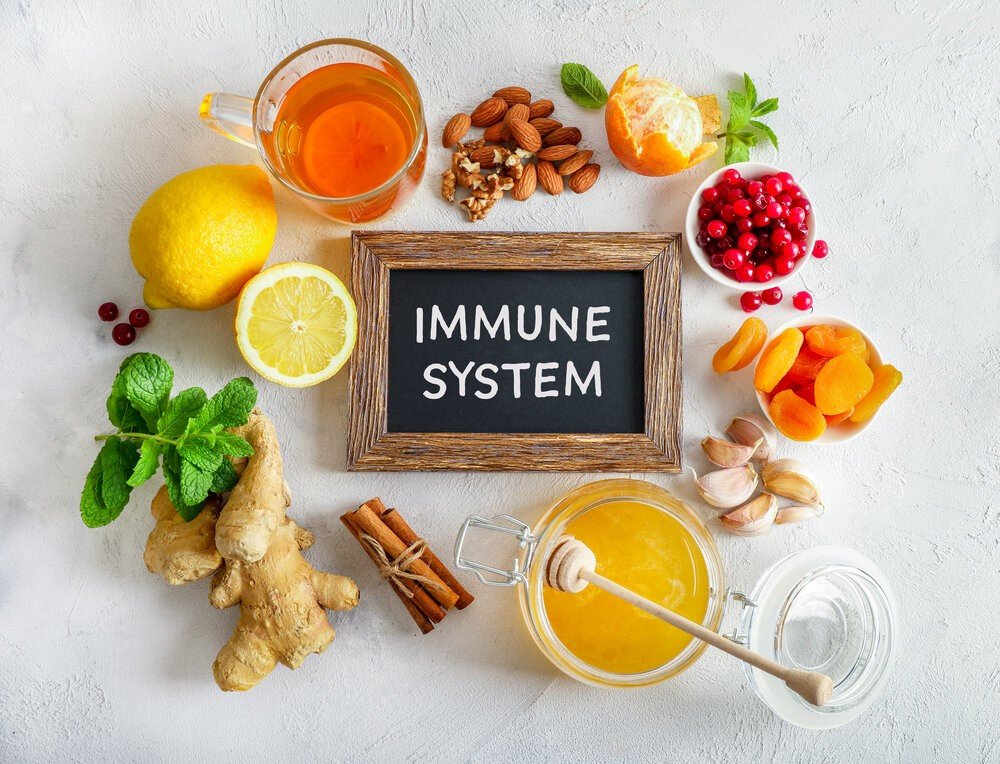Natural Ways to Boost Your Immune System
Health / Date: 10-11-2024

A strong immune system is vital for protecting the body from illness and infection. While many people turn to medications and supplements, there are natural and holistic methods to enhance immunity. By adopting healthy lifestyle practices, you can support your immune system and improve your overall well-being. Here are nine effective, natural ways to boost your immune system.
1. Prioritize a Balanced Diet
Eating a balanced diet rich in fruits, vegetables, whole grains, and lean proteins is one of the most effective ways to strengthen your immune system. These foods provide essential vitamins and minerals that support immune function. Nutrients such as vitamins A, C, D, and E, along with zinc and iron, play key roles in maintaining a healthy immune response.
Incorporating antioxidant-rich foods like berries, leafy greens, and nuts can also help protect your body from harmful free radicals that can weaken your immune system. A diet filled with a variety of colors and nutrients is crucial for keeping your body resilient.
2. Stay Hydrated
Proper hydration is often overlooked but is essential for maintaining a robust immune system. Water supports the production of lymph, a fluid in your body that carries infection-fighting immune cells. Staying hydrated also helps remove toxins from the body and ensures that your organs function optimally.
To stay properly hydrated, aim to drink at least eight glasses of water daily. You can also consume hydrating foods like cucumbers, watermelon, and oranges to further support your hydration levels. Herbal teas and broths are other good options to keep your fluid intake up.
3. Get Regular Exercise

Engaging in regular physical activity is a natural and effective way to boost your immune system. Exercise promotes good circulation, allowing immune cells to move freely throughout your body and perform their functions efficiently. Regular exercise can also reduce inflammation and help your body recover faster from infections.
Moderate-intensity activities such as walking, cycling, or swimming for at least 30 minutes a day can enhance your immune function without overexerting your body. It’s important to find a balance—while moderate exercise strengthens your immunity, intense, prolonged exercise may have the opposite effect.
4. Get Enough Sleep
A good night’s sleep is critical for immune health. During sleep, your body undergoes repair processes, including the production of cytokines, proteins that help fight infection and inflammation. Sleep deprivation can reduce the production of these immune cells, leaving your body more vulnerable to illness.
Aim for at least seven to eight hours of quality sleep each night. To improve sleep hygiene, maintain a regular sleep schedule, create a relaxing bedtime routine, and minimize screen time before bed. A restful night helps your immune system stay strong.
5. Manage Stress Effectively
Chronic stress can negatively impact your immune system, making you more susceptible to illness. Stress produces hormones like cortisol, which, when elevated for long periods, suppress immune function. Finding ways to manage and reduce stress is crucial for maintaining a healthy immune system.
Incorporate stress-relief techniques such as meditation, deep breathing exercises, or yoga into your daily routine. Practicing mindfulness or spending time in nature can also lower stress levels and improve your immune response. Managing stress is just as important as maintaining other healthy lifestyle habits for immunity.
6. Include Probiotics in Your Diet

Probiotics are beneficial bacteria that support gut health, which plays a significant role in overall immune function. A large portion of your immune system resides in your gut, and maintaining a healthy balance of gut bacteria helps regulate immune responses and prevent harmful pathogens from taking hold.
Probiotic-rich foods like yogurt, kefir, sauerkraut, and kimchi can help maintain healthy gut flora. You can also take probiotic supplements if needed. A well-balanced gut supports the immune system’s ability to fend off illness and infection.
7. Increase Your Vitamin D Intake
Vitamin D is essential for immune function, and many people have a deficiency without realizing it. Vitamin D helps activate immune cells that protect your body from pathogens, and adequate levels are crucial for maintaining a strong immune defense. Lack of sunlight exposure can lead to lower vitamin D levels, especially during colder months.
To boost your vitamin D levels naturally, spend time outdoors in the sun or consume vitamin D-rich foods such as fatty fish, eggs, and fortified dairy products. If necessary, a vitamin D supplement can also be beneficial, particularly if you live in a region with limited sunlight.
8. Use Herbs and Spices for Immune Support
Certain herbs and spices have natural immune-boosting properties. For example, garlic has antibacterial and antiviral effects that can help fight off infections, while ginger and turmeric possess anti-inflammatory properties that support overall immune health.
Incorporate immune-supporting herbs like echinacea, elderberry, and astragalus into your diet. These herbs can be consumed in teas, tinctures, or supplements. Regularly adding immune-boosting herbs and spices to your meals can enhance your body’s natural defenses against illness.
9. Avoid Smoking and Limit Alcohol
Smoking and excessive alcohol consumption can weaken your immune system, making you more susceptible to infections and illnesses. Smoking damages your lung tissue and inhibits the immune system’s ability to function properly, while alcohol can suppress immune cells and disrupt gut health.
Quitting smoking and limiting alcohol intake can significantly improve your immune health. Reducing exposure to toxins allows your immune system to focus on fighting off infections rather than dealing with the harmful effects of these substances.
Conclusion
Boosting your immune system naturally is not about quick fixes but rather adopting sustainable lifestyle practices. By focusing on a balanced diet, regular exercise, proper hydration, sleep, stress management, and avoiding harmful habits, you can build a strong immune defense that supports your long-term health. Incorporating probiotics, herbs, and sufficient vitamin D can further enhance your immunity. These natural strategies will help keep you resilient against illness and improve your overall well-being for the long haul.
Follow Us
Newsletter
Subscribe to our newsletter to stay updated with our latest news and offers.
We respect your privacy.







